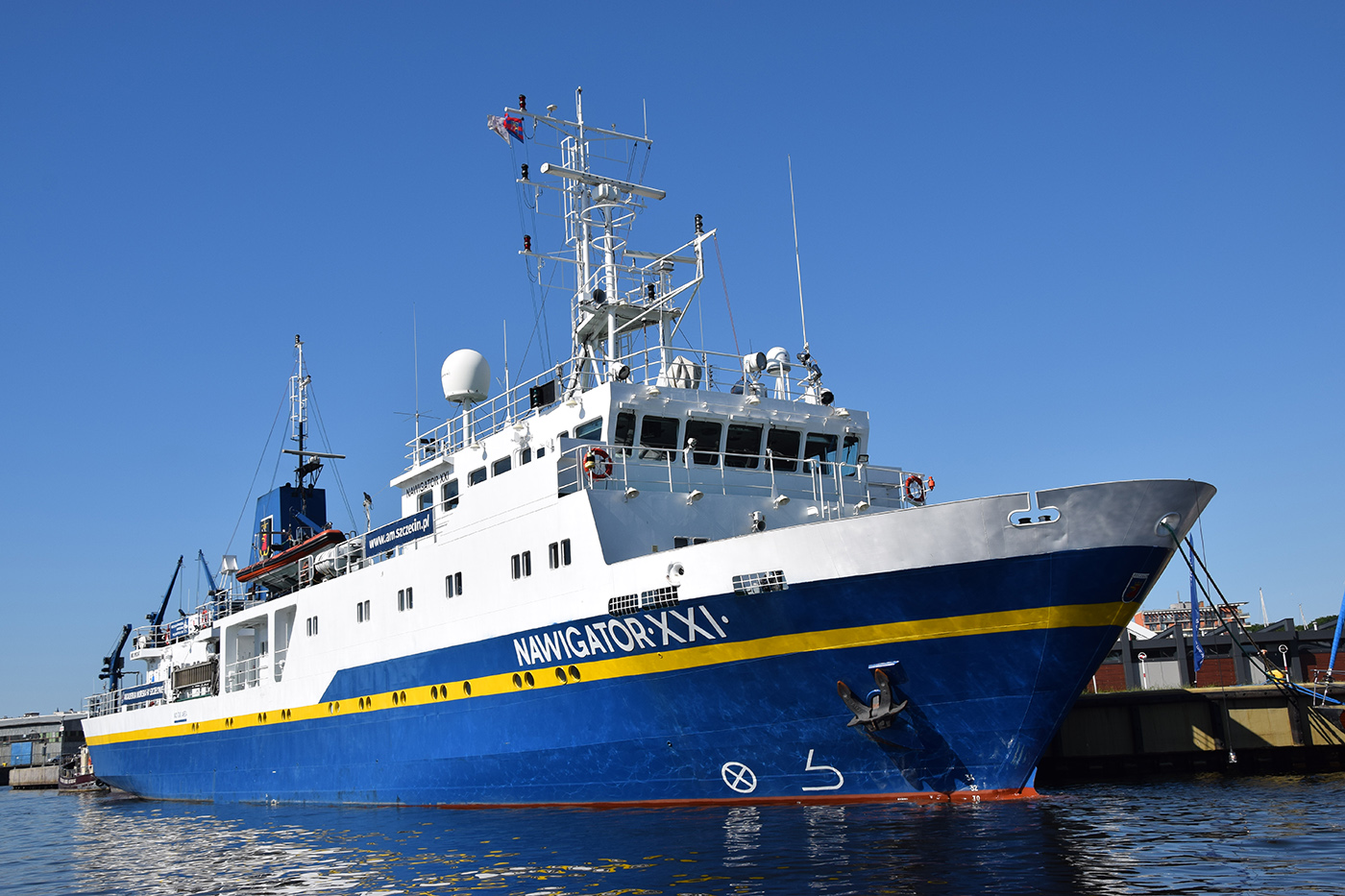Faculty of Marine Engineering About the Faculty

History of the Faculty
The history of marine education in Szczecin dates back to 1947, when the first school for maritime professionals was established in the Polish city of Szczecin, which was incorporated together with West Pomerania province (former German territories) into Poland after World War II. The first separate faculty with a mechanical engineering course (operation of fishing vessel machinery) was established in Szczecin at the State Marine Fishery School, which was founded at the landmark location at Chrobry Embankment in 1962. A year later, the State Maritime School was established, also with a separate Faculty of Marine Engineering. Graduates of both faculties have gained a reputation among Polish and foreign shipowners as excellent mechanics, able to handle any marine engine plant issue in any condition.
Over time, the two schools were merged into one institution and as the Maritime School of Higher Education (Pol.: Wyższa Szkoła Morska, est. 1968) become one of the major maritime schools in Europe. The Faculty of Marine Engineering provided thousands of highly respected marine engineers, who pursued their careers all over the world, both at sea and ashore.
In 1998, the University acquired a modern training and research vessel, the Navigator XXI, whose engine room is one of the places where MUS students learn the essentials of the ship's systems operation.

In 2004, the name of the school changed to Akademia Morska (Maritime Academy), which is the direct equivalent of a university in the generally accepted educational terminology. In Polish, "academy" is a term referring to an institution providing higher education, particularly in the uniformed or artistic professions.
The Faculty is authorised to confer doctorates and postdoctoral degrees in Mechanical Engineering.
Faculty of Marine Engineering today

In 2019, the Faculty acquired new, spacious premises at the address of 2 Willowa Street in Szczecin. The modern interiors of the renovated building provide space for multimedia lecture theatres, laboratories equipped with the latest equipment and staff offices.
The subsequent development of the University in terms of facilities, staff competence and expanding numbers of courses provided, resulted in the Polish parliament's decision to upgrade MUS status within the Polish education system. On the 1st of September 2022, the Polish name of the MUS was changed from "Akademia Morska" to "Politechnika Morska". The word "politechnika" comes from ancient Greek - polýtechnos - and means proficient in many arts. In the Polish educational system, a higher education institution called "politechnika" corresponds to a university or institute of technology in the generally accepted educational terminology used in English-speaking countries. Our name in English though, will not be changed and remains the Maritime University of Szczecin.
The Faculty of Marine Engineering provides full-time and part-time education in the following fields of study:
- Mechanical Engineering,
- Industrial Engineering and Offshore Wind Turbines.
These courses guarantee employment opportunities in the industry. Skills and knowledge gained during the studies will not be outdated with ongoing technological development.
Progressive digitalisation is closely linked to the dynamic development of mechanical issues, and there is no risk of our graduates being pushed out of the labour market. Our programmes are being updated on a regular basis and draw on the latest research achievements.

The Faculty staff expand regularly their competencies to train highly qualified professionals in mechanical, industrial and operation engineering. Continuous improvement in innovation is proven by the wide range of conducted research projects, teaching offer and a number of innovative technological solutions and patents, which researchers from the Faculty of Mechanical Engineering have introduced into the market. Most of them are not only engaged in academic duties but continue their careers on sea-going vessels in senior management positions.

The Faculty is active in research related to the operation of machines, the diagnosis of injection moulding systems and the development and fabrication of new metal composites. The group of researchers works in a wide range of areas, including the properties of various chemical components to produce more efficient composites, evaluating the technical condition of equipment and alternative fuels.
Cooperation with the business environment is an integral part of education at the Maritime University of Szczecin. Thanks to intensive cooperation with several companies, the Faculty of Mechanical Engineering moves forward with the development of state-of-the-art mechanical solutions. One of the most recent results of such cooperation has been the establishment of a training simulator centre for low-speed engines.
MUS cooperation with companies - both domestic and foreign - takes place in many dimensions. Students are placed for internships with regional leaders in various sectors of industry and have the opportunity to experience real-life settings at the position of their choice. Such relationships often lead to the recruitment of graduates, who acquired the necessary skills and confidence of their colleagues.
Full-time undergraduate programmes:
1. Mechanical Engineering course in Polish and English (engineer's degree, 4 years) offers the widest choice of specialities:- operation of marine power plants,
- diagnostics and repairs of marine machinery and equipment,
- operation of marine power plants and motor yachts,
- refrigeration and air-conditioning techniques,
- recycling technology and techniques,
- diagnostics and repair of wind power plants.
2. Industrial Engineering and Offshore Wind Turbines course in Polish (engineer's degree, 3,5 years) offers 2 specialities:
- wind turbine operation,
- industrial system diagnostics.
Training wind turbine on a 20-meter mast on the premises of the MUS Faculty of Marine Engineering.

Full-time postgraduate programme:
1. Mechanical Engineering course in Polish and English (engineer's degree, 1,5 year) with a speciality:- construction and operation of marine power systems.

Part-time undergraduate programme
1. Mechanical Engineering course in Polish (Master's degree, 1,5 year) with a speciality:- operation of marine power plants.
Part-time postgraduate programme
1. Mechanical Engineering course in Polish and English (Master's degree, 1,5 year) with a speciality:- construction and operation of marine power systems.

